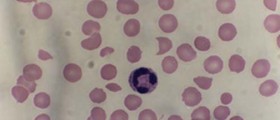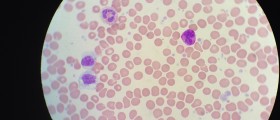
Hemolysis has something to do with the breakdown of red blood cells, elevated liver enzymes indicate the liver is not functioning correctly, and a low platelet count negatively impacts the blood's ability to clot. Up to 12 percent of pregnant women who are diagnosed with preeclampsia will go on to develop HELLP Syndrome, but it's thought that HELLP can stand alone from preeclampsia as well. The early symptoms of HELLP Syndrome include:
High blood pressure (and the development of HELLP is linked to pregnancy induced hypertension too). Agonizing headaches, often including problems with vision. Water retention during pregnancy, AKA edema. Protein spillage into the urine.HELLP Syndrome is diagnosed with the help of blood tests, urine tests, and blood pressure measurements. Your doctor may do these tests after you start noticing physical symptoms of HELLP Syndrome, or your OBGYN finds something unusual during one of your routine prenatal appointments. There is no cure for HELLP Syndrome other than giving birth. Induction of labor, or a c-section, is the preferred treatment of this condition for women who are already close to their due date. If the baby would be born extremely prematurely, doctors may seek to manage the symptoms of HELLP Syndrome, while the pregnant mother is hospitalized. This can delay delivery for a while. If that happens, management of HELLP Syndrome will include giving corticosteroids to speed up lung development of the baby's lungs, so that the baby will have fewer problems if born prematurely. At the same time, the mother may receive a blood transfusion (if the platelet count drops too low), hypertension meds, and magnesium sulphate.

















Your thoughts on this
Loading...